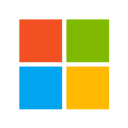Top Windows Server 2008 Alternatives for Modern IT Infrastructure
Released over a decade ago, Windows Server 2008 was a foundational server operating system, aiming to "save time, increase scalability, and reduce costs with the Windows Server 2008 R2 virtualization tools, Web resources, and management enhancements." While it served many organizations well, its end-of-life status means a critical need for robust, secure, and modern alternatives. This guide explores the best Windows Server 2008 alternative solutions to help you migrate and upgrade your IT infrastructure.
Best Windows Server 2008 Alternatives
Whether you're seeking open-source flexibility, enhanced security features, or updated commercial support, there's a Windows Server 2008 alternative perfectly suited for your organization's evolving needs. Dive into our top picks.

CentOS
CentOS is a compelling Windows Server 2008 alternative, offering a free and open-source operating system based on Red Hat Enterprise Linux. As a community-supported platform, it provides an enterprise-class computing environment with robust operating system and shell integration features, making it a powerful and cost-effective solution for many server needs.

FreeNAS
For those prioritizing network-attached storage, FreeNAS stands out as an excellent Windows Server 2008 alternative. This free and open-source operating system, based on BSD, can be installed on virtually any hardware to facilitate data sharing over a network. Its focus on being lightweight, security-focused, stability, and virtualization capabilities makes it ideal for creating centralized, secure storage solutions.

Ubuntu Server
Ubuntu Server is a leading free and open-source Linux platform, making it a highly popular Windows Server 2008 alternative for scale-out computing. It excels in deploying OpenStack clouds and Hadoop, and its strong Linux and ARM support features ensure versatility and efficiency for modern infrastructure needs.

CoreOS
CoreOS offers a modern Linux distribution rearchitected for running contemporary infrastructure stacks, serving as a robust Windows Server 2008 alternative. As a free, Linux-based operating system, it provides the features and architectures necessary for efficient and scalable cloud-native deployments.

Univention Corporate Server
Univention Corporate Server (UCS) is an open and innovative platform, providing a comprehensive Windows Server 2008 alternative for managing server applications and complete IT infrastructures across Linux, MS Windows, and Mac OS X. It's free and open-source, boasting features like Active Directory integration, DHCP Server, DNS management, Single Sign-On, LDAP Services, and support for Docker and Multi-Factor Authentication (MFA), making it a highly versatile solution.

Windows Server 2012
For organizations looking to stay within the Microsoft ecosystem, Windows Server 2012 (codenamed "Windows Server 8") is a direct commercial upgrade and a natural Windows Server 2008 alternative. Succeeding Windows Server 2008, it enhances capabilities with features like Active Directory integration, data deduplication, improved operating system functionalities, and advanced virtualization, offering a familiar yet modernized experience.

macOS Server
macOS Server provides a powerful commercial Windows Server 2008 alternative, especially for Mac-centric environments. It effortlessly transforms your Mac into a robust server, offering remarkably easy installation and features such as backup capabilities, a comprehensive operating system, and virtualization tools, suitable for businesses, home offices, or schools.

Windows Server 2019
Windows Server 2019 represents the most current commercial offering in the Windows Server lineage and is an excellent direct Windows Server 2008 alternative. Built upon the strong foundation of Windows Server 2016, it continues to provide a robust and secure server environment for enterprises, ensuring ongoing support and compatibility with the latest Microsoft technologies.
The transition from Windows Server 2008 is an opportunity to enhance your infrastructure with modern features, improved security, and better scalability. Carefully evaluate each Windows Server 2008 alternative based on your specific operational needs, budget, and existing IT environment to find the perfect fit for your organization's future.